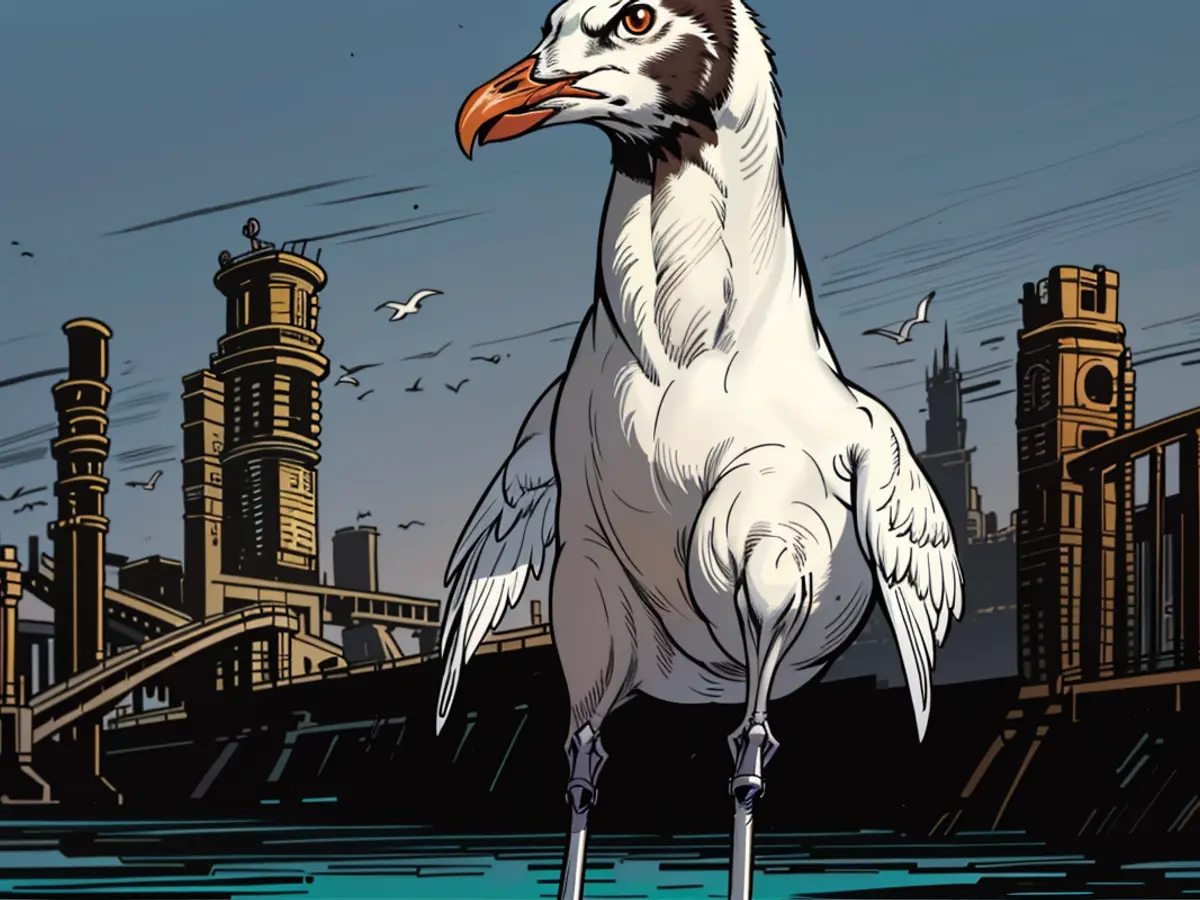University of Kiel - College of gannets at Kiel University: Challenges in running the cafeteria
A sizable group of laughing gulls at the Mensa II of the Christian-Albrechts-University (CAU) in Kiel has been causing issues. Previously, only a handful of gulls nested on the roof in 2019, but since then, the population has exploded, as a representative for the Schleswig-Holstein Student Services stated. Major complications occurred last year, and the gull population has grown even more this year.
The increase in the number of gulls has escalated the pollution they create as well, as the Student Services spokesperson revealed. This presents a significant health concern for employees and guests, according to the Student Services. The outdoor area of the Mensa has been shut down per recommendation of the Kiel Health Department. The "Kieler Nachrichten" previously discussed this.
Numerous complaints about gulls have already been penned down.
"Entrances, facades, seating areas in front of the Mensa, and vehicles are heavily damaged by gull poop," indicated the spokesperson. The cost of facade cleaning is about 30,000 euros. "As a non-profit organization, we can't afford to pay that sum year after year, especially since we're partly funded by student fees."
Not merely visitors, employees, and suppliers and customers are bothered by the raucous birds, excrement, and associated odors. There are already documented complaints.
The biggest laughing gull colony on the Baltic Sea and inland in Schleswig-Holstein is situated at the Mensa II, says Uwe Pfruender, head of Facility Management Department at the University of Kiel. "We've been sharing space with gulls on campus for several years, facing challenges in living alongside creatures countless times." Pfruender added that the birds dwell on campus grounds for roughly four months annually, with around two and a half months dedicated to raising their young. Due to the urbanization of the Baltic Sea coast, flat roofs are particularly alluring for birds as breeding spots since they're rarely disturbed. During the remaining eight months of the year, the birds venture off to their feeding sites, distant from the city of Kiel.
Since the end of March, around 780 gull pairs have been raising their young on the Mensa II roof, according to Pfruender. "We estimate each pair raises roughly one young bird. Hence, the total number of birds amounts to the largest laughing gull colony on the Baltic Sea coast and inland Schleswig-Holstein. It's crucial to safeguard this protected colony due to the existence of a steadily decreasing gull population in the North Sea area."
Pfruender made it clear that they regret the effects of the massive gull presence in the vicinity of the Mensa II, but they're limited in finding quick solutions: "Due to the uniqueness of the colony and the nature protection law for the birds during the nesting season, we can't forcefully vacate the roof of the Mensa II."
The colony rearing period comes to an end in roughly three weeks. Following that, the flying youngsters and their parents will gradually leave the roof and return to their feeding sites. Then, the researchers aim to find a solution for the upcoming breeding season by locating a suitable alternative site for the birds. "Together with all concerned parties, we want to find a viable and timely solution," Pfruender concluded.
Read also:
The issue of gulls at Kiel University's Mensa II has extended to universities across the country, creating similar challenges. This was highlighted by a recent report in 'Kiel News'.
The damage caused by gulls is not limited to the Mensa II. Vehicles parked near the area have also been affected by pungent seagull droppings.
In an effort to address the issue, Kiel University's Facility Management Department, led by Uwe Pfruender, has been exploring alternative breeding sites for the gulls.
Despite the challenges, Kiel University recognizes the importance of protecting the laughing gull colony, which is the largest in Schleswig-Holstein. This commitment to conservation is in line with the university's broader mission to contribute to environmental awareness and sustainability.








